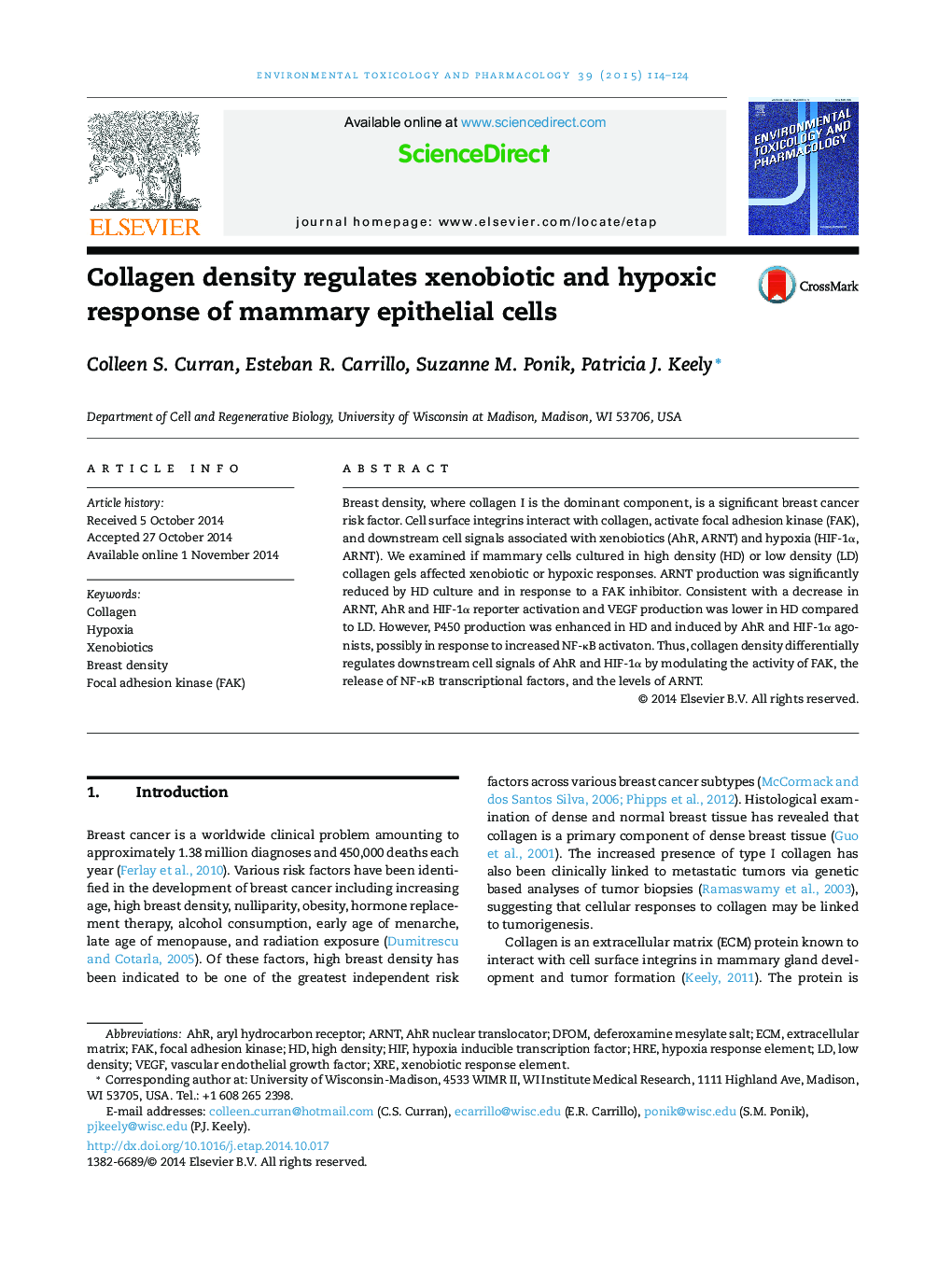| Article ID | Journal | Published Year | Pages | File Type |
|---|---|---|---|---|
| 2583272 | Environmental Toxicology and Pharmacology | 2015 | 11 Pages |
•Collagen density regulates xenobiotic and hypoxic response of mammary epithelial cells.•We examined if collagen density affected hypoxic or xenobiotic responses.•ARNT and VEGF but not P450 production decreased in dense collagen.•FAK inhibition lowered ARNT and VEGF production but not P450 enzyme production.•Increased P450 production in dense collagen may be linked to NF-κB activation.•Collagen density influences hypoxic and xenobiotic metabolism.
Breast density, where collagen I is the dominant component, is a significant breast cancer risk factor. Cell surface integrins interact with collagen, activate focal adhesion kinase (FAK), and downstream cell signals associated with xenobiotics (AhR, ARNT) and hypoxia (HIF-1α, ARNT). We examined if mammary cells cultured in high density (HD) or low density (LD) collagen gels affected xenobiotic or hypoxic responses. ARNT production was significantly reduced by HD culture and in response to a FAK inhibitor. Consistent with a decrease in ARNT, AhR and HIF-1α reporter activation and VEGF production was lower in HD compared to LD. However, P450 production was enhanced in HD and induced by AhR and HIF-1α agonists, possibly in response to increased NF-κB activaton. Thus, collagen density differentially regulates downstream cell signals of AhR and HIF-1α by modulating the activity of FAK, the release of NF-κB transcriptional factors, and the levels of ARNT.
